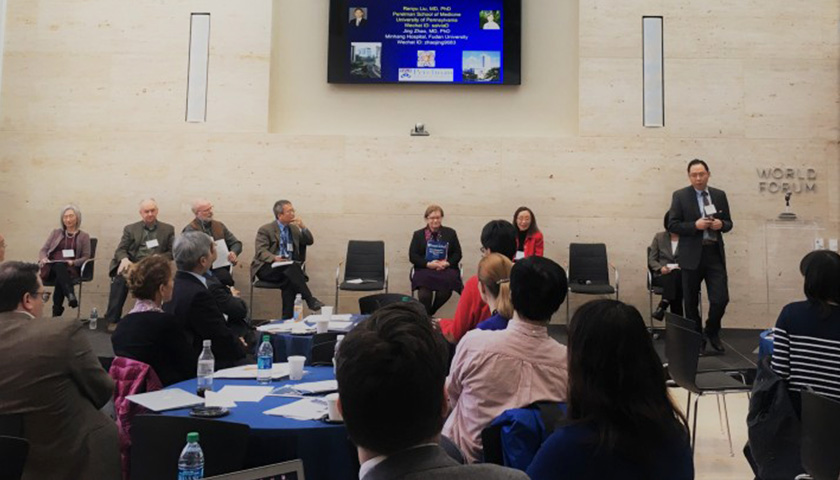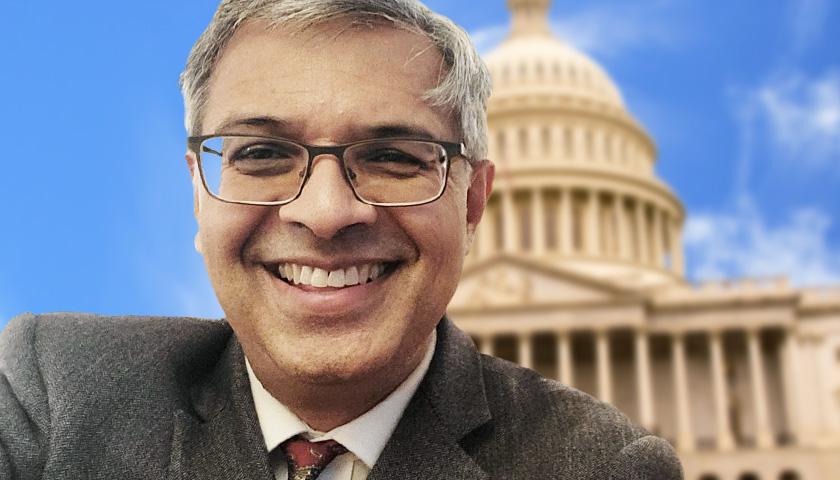“Today, Penn’s relationship with China is strong, and continues to grow.”
That’s how the University of Pennsylvania’s Penn Global website still refers to the Philadelphia-based Ivy League school’s association with the communist-run nation.
“As of April 2018, Penn has over 20 international partnerships with Chinese institutions,” the statement continues. “Faculty from all of Penn’s 12 Schools have reported over 350 research projects and instructional activities in China. And since 2011, 1,400 Penn students have studied abroad on traditional and short-terms [sic] programs in China.”
The university’s relationship with the Asian hegemon is receiving renewed scrutiny in light of the classified documents scandal in which President Joe Biden finds himself enmeshed. In 2017, Biden took a professorship at Penn, and the school that year unveiled a new foreign-policy think tank called the Penn Biden Center.
The former vice president would use the D.C.-based office as his primary workplace in the nation’s capital before winning the White House in 2020. Earlier this month, reports came out that almost a dozen classified federal records from the Obama-Biden administration were discovered at the center last November. (More such materials were found at Biden’s Wilmington, Delaware home.)
Chinese corporate entities famously donated millions of dollars to Penn in recent years, with the university having particular success raking in gifts and contracts from China-based institutions when Biden was affiliated with the university. In 2020, the nonprofit National Legal and Policy Center (NLPC) asked the U.S. Department of Education (DoE) to investigate the Chinese sources of largesse that Penn reported as “anonymous.” In its request, the NLPC cited the Higher Education Act of 1965, which stipulates universities must publicize the source of any donation or contract worth more than $250,000 in a calendar year.
Disclosure forms show Chinese gifts to, and contracts with the university totaled $61 million between 2017 and 2019, when Biden was employed at Penn. Of the donations received, $22 million were from sources the school did not name.
When NLPC filed its request for a federal probe, which the DoE never undertook, Chinese entities had donated to or finalized contract work from the school 99 times since 2013. Among the institutions actually identified were Zhegiang University, China Merchants Bank, and Hainan Airlines. Money flowing from China to Penn over those seven years totaled nearly $68 million.
Today, that amount stands at approximately $86 million, according to NLPC counsel Paul Kamenar. He told The Pennsylvania Daily Star that Penn revealed no new information about any of the anonymous gifts in the two-a-half years since NLPC contacted the DoE.
At this writing, Penn has not responded to an email from The Daily Star asking whether the university plans to disclose any of the donations or which school officials spearheaded fundraising from Chinese sources.
NLPC and other watchdog organizations have voiced concern that the millions China pours into Penn could improperly influence scholarship regarding a nation hostile to the U.S. that maintains a massive nuclear arsenal and has engaged in monstrous human rights abuses.
When former Penn President Amy Gutmann spoke to the Senate Foreign Relations Committee in anticipation of her eventual confirmation as U.S. Ambassador to Germany, she suggested that DoE rules require some large gifts to universities to be reported as anonymous. Kamenar said that explanation is “100 percent nonsense.”
In September 2018, Gutmann traveled to Beijing, home to the Penn Wharton China Center, an office affiliated with the university’s business school. While there, she touted her institution’s “more than two centuries of collaboration” with the nation.
Penn scholars affiliated with Penn Global, the university organization of which the Penn Biden Center is a part, sometimes speak and write critically of China but often intersperse their assessments of the communist nation with praise. Ezekiel Emanuel, the oncologist who served as a health advisor to Barack Obama and who Biden appointed to his COVID-19 Advisory Board, serves as the university’s vice provost for global initiatives. In early 2020, he was initially reluctant to criticize China’s handling of the novel coronavirus outbreak.
“Everyone in America should take a very big breath, slow down, and stop panicking and being hysterical,” Emanuel told CNBC that January. “We are having a little too much histrionics on this.”
That spring, he reversed himself and insisted that America should stringently lockdown for “12 to 18 months.” As COVID shifted from a pandemic to an endemic disease, Emanuel softened his stance on mitigation measures; he coauthored a New York Times essay last January with epidemiologist Michael Osterholm opposing China’s “zero-COVID” policy.
But even in that piece, the two doctors said that “China has weathered the pandemic well so far,” parroting World Health Organization statistics stating China experienced only 140,000 confirmed cases and fewer than 6,000 fatalities over the prior two years. They further wrote, “All of this seems like an enormous success when compared with the messy and often chaotic response to the virus in the United States.”
Other Penn Global scholars have expressed accommodationist views on China as well. Scott Moore, director of Penn’s China Programs and Strategic Initiatives, last year published China’s Next Act: How Sustainability and Technology are Reshaping China’s Rise and the World’s Future. The book, in the author’s words, “calls attention to the many cases where the risks and threats posed by China’s rise are overstated or misunderstood.”
And the university has occasionally invited spokespeople for the regime to make a case for “progress away from the current tone of rivalry,” as the school’s newsletter Penn Today stated in February 2020. The previous month, Penn held its Penn China Research Symposium at which Chinese consul general in New York Huang Ping gave an oration urging a more cooperative relationship.
While Penn has not acknowledged more than a few thousand dollars of Chinese money directly flowing to the Penn Biden Center, Kamenar said common sense suggests the gifts and contract payments fund the school’s international-policy programs.
“Certainly they’re not taking that money and giving it to the music department…,” he said. “It doesn’t take a Sherlock Holmes [to recognize] that they’re taking Chinese money and funneling it through their various schools and programs and institutes that deal with foreign affairs and China relations.”
– – –
Bradley Vasoli is managing editor of The Pennsylvania Daily Star. Follow Brad on Twitter at @BVasoli. Email tips to [email protected].
Photo “Penn in China” by Penn Global.





